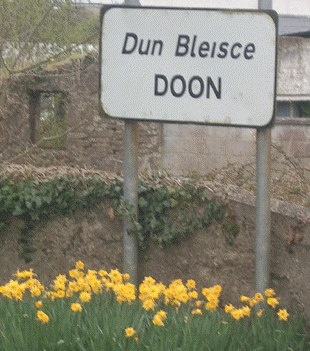Doon initiative aiming to serve ‘marginalised’ members of community

A social farm concept is tackling rural isolation and exclusion thanks to a gift of 33 acres and extensive buildings from the Sisters of Mercy.
Departing the Limerick village of Doon in 2016, after more than a century and a half, the Sisters donated their farm, convent and outbuildings to the local community led by Ballyhoura Rural Services CLG, an organisation dedicated to helping people who are affected by social isolation and exclusion.
“It was a great surprise… they wanted it to be used for something that would benefit the community and be within the ethos of their order, which had contributed so much to this rural community over so many decades,” says Carmel Fox, former chief executive of Ballyhoura LEADER, who inspired the idea.
A board of eight people, all from farming families – including a Sister – was established to take on the venture.
Chairman John Murray explains: “We have been working with the older people because we are conscious of the isolation that is affecting so many in rural areas now, but we realise there is a need to respond to the needs of other people too who are experiencing social isolation, particularly young people.”
After visiting social farms in the Netherlands and the UK, they were convinced that the concept would address the causes of isolation/exclusion, and barriers to education for young people in the area.
The mission statement of the Social Farm at Doon reads that their objective is to serve “early school leavers, people who are not employed or in education, people recovering from drug and alcohol misuse, young offenders, people with various disabilities, people with mental health issues, marginalised youths and young people who may have an interest in gaining knowledge about farming”.
A group of 12 young people recently began a course at the centre, and they are hopeful a few more will soon join them to make up a full class of 16.
“Rural isolation is huge in the rural community and they are even talking about a Minister for Loneliness at some point because it is reckoned that it is going to become the biggest killer – bigger than cancer and heart disease – in the community,” said centre manager Tom Kent, a Corkman with wide experience in youth and social services as well as the hotel industry.
“The whole concept of outdoor learning and being practical-based and in touch with the soil and all that is going to become a bigger issue with young people. Also dealing with animals and going outside of their own zone and into a caring situation has huge benefits to bring people out of themselves.”
Doon Social Farm has received the support of the Limerick Education and Training Board, and a number of agri-business concerns. FBD Trust has funded mechanisation for the farm.
FBD Trust chairman Michael Berkery said: “It is great to see the farm being developed into a functioning operation that means something for people that really need it. Hopefully it will be another monument for a further couple of hundred years in the service of this community – it is a very worthwhile project.”
The local community have contributed €14,500 towards development costs to date.
The centre is purpose-built and “ready to walk in” having been used as a working farm, and a large horticultural section is already growing a multiple selection of crops organically.
Approval has been received as a training centre for QQI-certified (FETAC Level 4) one year courses in Horticulture, and short courses and workshops. Day trips for schools and other organisations are also on the agenda, along with, garden allotments. Fruit and vegetables from the farm are already being marketed locally.
The overall plan is geared toward maximum local involvement with provision for men’s sheds, and women’s shed under consideration.
Last August planning permission was granted for the conversion of the three-storey convent building to accommodate 22 assisted living apartments, as well as a cafe.
This article first appeared in the Farming Independent on February 28th, 2020 and was written by Martin Ryan.


